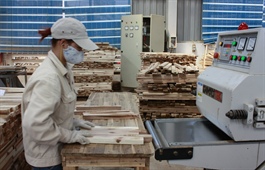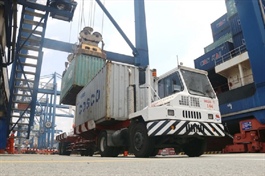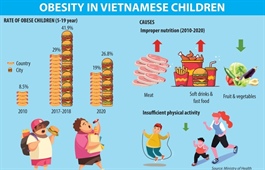Enterprises unable to exploit opportunities
Enterprises unable to exploit opportunities
Support industry enterprises, which are the backbone of the country’s industrial development, are facing major opportunities offered by Vietnam’s unprecedented number of new-generation free trade agreements (FTAs) but are constrained by numerous challenges caused by the Covid-19 pandemic.
Poor financial, tech capacity
According to the Ministry of Industry and Trade, support industry enterprises account for almost 4.5 percent of all manufacturing and processing businesses in Vietnam. A number of Vietnamese producers are capable of manufacturing molds of all kinds, bicycle and motorbike components, and standard mechanical components, among other parts and components. Increases in the local content in a number of industries are attributed to the support industry’s improved production capability.
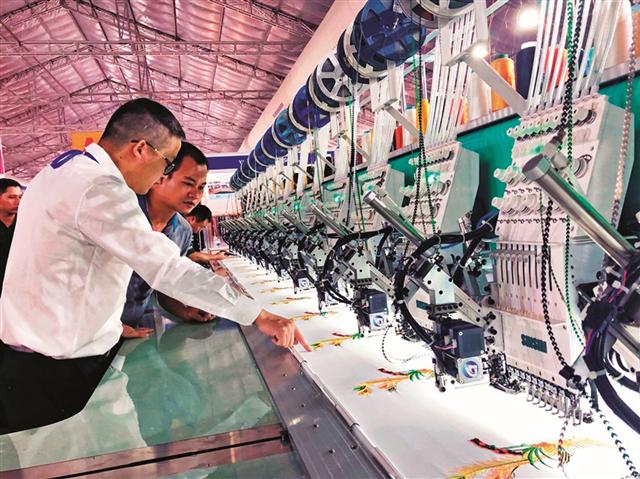
The number of Vietnamese enterprises joining the global supply chain remains small
|
However, 99 percent of support industry enterprises in the country are super small, small and medium in size with poor financial and technological capabilities. They still find it difficult to benefit from preferential credit, taxes and land lease rates.
A representative of a support industry enterprise said his company encountered difficulties in accessing capital, attributing the problem to the banks’ and financial institutions’ problematic lending policies. Truong Thi Chi Binh, Vice Chairwoman of the Vietnam Association of Supporting Industries (VASI), said it is supremely difficult for enterprises to access preferential credit and it is even hard for them to access credit from credit funds due to hard-to-meet, complicated collateral procedures. In other countries, businesses with a major order from such world leading brands as Samsung and Canon are eligible for preferential credits, Binh said.
Support industry law
Businesses have urged relevant authorities to provide support enterprises with access to market information, credit and other preferences. They also proposed that the government prepare and submit to the National Assembly for approval a support industry law. Some have suggested that the government get foreign corporations in Vietnam to increase their local content by encouraging them to place orders with Vietnamese support industry enterprises.
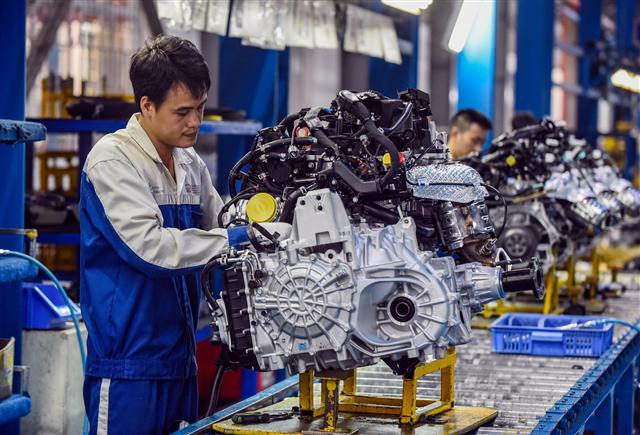
Support industry enterprises expect development incentives
|
On August 6, 2020, on the advice of the Ministry of Industry and Trade, the Prime Minister issued Resolution 115/NQ-CP on support industry development that is expected to create a big push for support, processing and manufacturing industries. The resolution sets out a 2025 goal for Vietnamese enterprises to produce highly competitive support industry products, meeting 45 percent of the essential needs for domestic production and consumption; accounting for about 11 percent of industrial production value. The goal calls for some 1,000 enterprises to be capable of directly supplying assembly enterprises and multinational corporations in Vietnam, with domestic enterprises accounting for about 30 percent.
The Ministry of Industry and Trade will amend and supplement regulations on support industry development. The ministry’s Industry Agency will work with regional market authorities and Vietnamese trade offices abroad to strengthen investment promotion and global production chain development, and take advantage of FTAs signed by Vietnam.
| According to various plans and forecasts, by 2030, support industry products will meet 70 percent of the demand for domestic production and consumption; accounting for about 14 percent of industrial production value. There will be about 2,000 enterprises capable of directly supplying assembly businesses and multinational corporations in Vietnam. |









